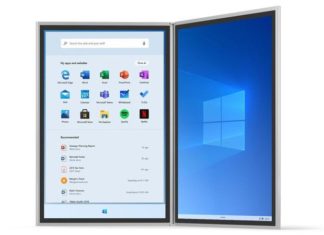Tasmania has risen to first place in Australia in terms of ease to do business in the Cisco Australian Digital Readiness Index 2020 report, and when combined with its lack of coal use and reliance on hydro, the state jumped from near the bottom of the Australian states ranking to be firmly mid-table.
The Apple Isle gained its increase on the back of having the highest five-year business survival rate in the country, being rated as the state with the highest level of government support for small businesses and having the second-highest rate of confidence among small to medium-sized businesses. The state was also boosted for having 99.9% of its premises able to receive an NBN connection.
On the flip side, Tasmania had the second-lowest per capita level of business investment in research and development.
Overall, the postage stamp-sized ACT was rated the most digitally ready place in Australia, followed by New South Wales, Western Australia, Tasmania, Queensland, South Australia, and the Northern Territory.
As the home of the Commonwealth public service, the sheep paddock cum national capital scored well for having a trained labour force, high government expenditure per capita on R&D, and being able to cater for basic needs. It dropped down the ranking, however, in categories such as startup environment and ease of doing business.
Leading the way in venture capital investment was NSW, which had almost double that of the now second-placed ACT. Despite this, the state was ranked only sixth for technology adoption and seventh for technology infrastructure.
The report, which was based on surveys completed in June 2020, was an update on a report first completed in 2018.
Vice president of Cisco ANZ Ken Boal said the first report was a chance to encourage businesses and governments to increase digital investments.
“Two years later the value of those investments have been repaid many times over and has provided Australia with a robust and comprehensive digital capability that has been essential for navigating through the COVID-19 crisis and building economic recovery post-pandemic,” he said.
“However, it is important that we don’t become complacent with Australia’s digital readiness. This report highlights the need for accelerating new investment to improve Australia’s global competitiveness to keep up with competitor nations and bridge the divide between states and territories to build societal resilience.
“Digitally advanced countries such as Singapore, which ranked first in the global index this year, should help Australia to set the ambition for its digital readiness.”
Earlier in the week, the Australian government released submissions to its proposed Security Legislation Amendment (Critical Infrastructure) Bill 2020, which would expand the obligations in the Security of Critical Infrastructure Act 2018 to the communications, financial services and markets, data storage and processing, defence industry, higher education and research, energy, food and grocery, healthcare and medical, space technology, transport, and water and sewerage sectors.
The tech giants, including Cisco, asked that definitions and classifications be clarified, particularly around terms such as data and cloud computing.
“We, and I think we weren’t the only ones, we made a comment about whether data centres should be an industry in itself — because obviously every business that could be caught by the [Bill] is probably operating a data centre or has data in a data centre or relies on a data centre to access its critical applications,” Cisco ANZ director of government affairs Tim Fawcett told journalists on Tuesday.
“So we made the point that that shouldn’t necessarily be an industry in and of itself.”
Late last month, Cisco announced an update to its SecureX set of products that involved the company pointing out for the first time in 13 years it had reduced the number of product names on its security portfolio by half.
“I think we at Cisco have done a lot of things right over the years and then there’s a few things … that we could probably do better,” Cisco senior vice president and general manager for security Jeetu Patel told ZDNet.
“We found in security that our products were getting to be so convoluted to understand on what they did and what they were that there were just far too many things, and for a new person coming in, it just would make your head hurt.”
Patel added that Cisco has bundled products together in a more logical way and given products names that are descriptive.
“So that people don’t have to say ‘Well what is that?’ and let’s make sure that we do without acronyms, and just talk about names that are very descriptive,” he said.



